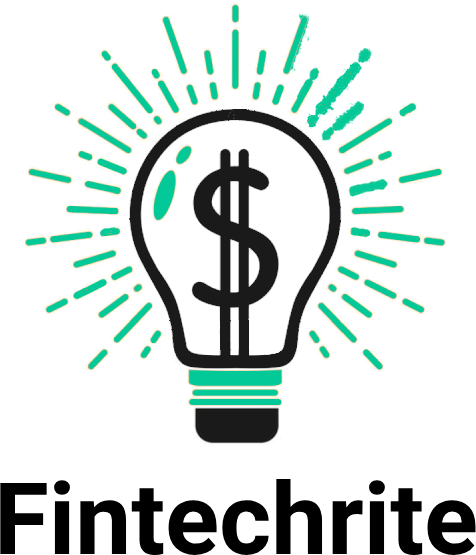The rise of the internet has brought the world closer to all. Digitization and globalization allow companies to get the best manpower to work, giving billions of talented individuals an opportunity to participate in a connected economy. With the booming blockchain technology, a global network for cheap and fast transfer of digital assets has been created, which is beneficial to all. Blockchain has created new ways to earn money and let people be a part of a global financial system.
The hi-tech financial sector is witnessing a dynamic transformation as the existing system is incapable to meet the growing customer demand. Since more people use crypto assets, they acknowledge these needs. Cryptos and blockchain play a crucial role in the future of payments as the financial market reaches the next step in its evolution. Blockchain is redefining how people can access money and businesses transact worldwide. Blockchain is an innovative payment solution considered by banks to complete global payment transactions in different currencies. This technology has changed how we verify, access, and transact data among each other and makes electronic transactions between two parties easy and hassle-free without depending on a central authority for verification.
All about Blockchain
Blockchain Technology works on the concept of “proof of work” to authenticate transactions. It promises low-cost financial transactions and real-time solutions. With the growth in blockchain technology, businesses have understood the importance of blockchain, which is a distributed ledger technology (DLT). Banks and fintech consider using DLT as the pillar of a new cross-border payments infrastructure to address all the inefficiencies and the most affordable rates.
This technology provides several real business advantages to people. The potential cost savings, higher efficiency, enhanced improved customer experience are some of the advantages of blockchain technology in the global financial market. The technology is being used more as it speeds up and simplifies the cross-border payments process, lowers the need for traditional middlemen, and makes money remittance more affordable.
Different institutions have understood the opportunity provided by blockchain in the areas of the supply chain, trade finance, investment banking, and global payment services.
Banks & Fintech companies To Explore Usage of Blockchain Technology for Cross Border Payments
Blockchain has already brought significant changes in payment services. Consumers and businesses transmit hundreds of billions of dollars globally each year via traditional funds transfer, which otherwise is a tiring and time-consuming process. Thus to get a solution to this, more banks have started using blockchain technology as an alternate platform to transfer funds. Now let us quickly understand the key highlights of blockchain.
Advantages of Blockchain for Global Payments Services
Quick settlement of Cross-border payments
Presently financial institutions depend on numerous correspondent banks to provide access to global currency corridors to service cross-border transactions. It brings a lot of uncertainty in delivery and funds settlements with numerous points of failure and limited transaction visibility. This eventually can result in frequent errors and longer transaction settlement times, especially when both parties are located in different time zones nations. But with blockchain technology, banks can lower costs on service global payments.
Reduced cases of Fraud
One of the main challenges faced by the banking industry today is a sudden surge in fraud and cyber-attacks. Traditionally, bank ledgers were created within a centralized database, which was targeted more by hackers and cyber-attackers. In contrast, as the blockchain is decentralized, there are lesser chances of fraud. The blockchain ensures clear transparency and enables real-time fraud analysis and prevention. Blockchain is a fraud and risk compliance solution that takes care of some of the most critical problems with current anti-money laundering procedures.
Peer-to-Peer Networking
Blockchain is a protocol operating on top of the Internet, on a peer-to-peer network of computers that all run the protocol to share data in real time. To make global payments if parties are a part of such a system, then payment information sharing can easily occur happen in real-time. This helps resolves one of the major challenges while making global payments. Additionally, there is no network cost associated with the transactions.
Distributed Data Storage
Blockchain is also an electronic shared ledger that is used to build an immutable historical record of transactions. All the important records are safely stored in multiple computers which all are a part of the network. This reduces the need to use extensive & complex reconciliation processes to safely keep all the data secured in one place. Additionally, it helps boost customer experience by providing them with the much-desired information lie exact timings, amounts, charges & fees collected, etc.
Cryptography –
All the transactions done in blockchain are cryptographically signed to prevent tampering, thereby making it the most secure platform. With blockchain technology, you don’t have to depend upon any intermediary bank’s financial institutions for global payments. The use of intermediaries unnecessarily adds to the overall cost.
Blockchain Integration with Payment Systems
Numerous competing blockchain solutions are available to solve the business integration challenges and provide a better option for network members to integrate their payment applications.
Conclusion
Indeed Blockchain technology is replacing the present centralized business model of the financial services industry. More banks and financial institutions look for new ways to implement blockchain tech to lower transaction costs, improve transaction speed, reduce multiple transactions and detect fraud. Moreover, this technology provides cost-efficiency, quick settlement, security, and complete transparency in payment.
With so many benefits, it is time to start using blockchain technology. The technology’s full potential can only be tapped if all of us adopt it. With the adoption of blockchain-based financial solutions, banks and other institutions can grow beyond boundaries.
